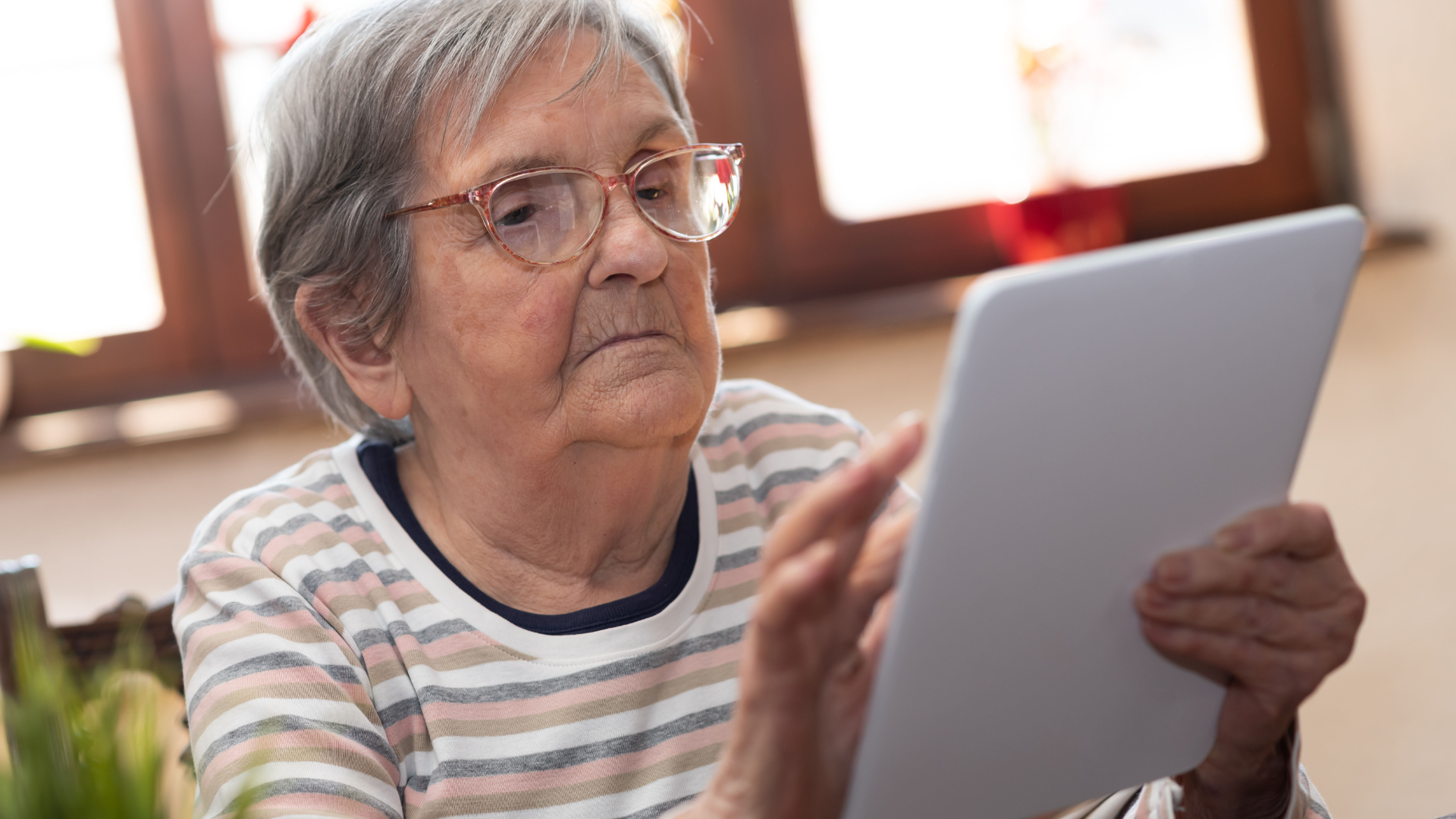
How technology can help people living with AMD
A diagnosis of age-related macular degeneration (AMD) can leave people worried that they’ll lose their independence. However, technology can help them with daily life. Here’s how.
AMD causes people to gradually lose cells in the retina at the back of the eye which can lead to sight loss. This is a worry to the four million people in the UK estimated to be living with signs of the condition by the Royal National Institute of Blind People (RNIB).
Though there are ways to help slow down the progression of AMD, the sight loss this condition causes can make daily life and the completion of regular tasks more difficult. However, certain technologies are now available to help people living with AMD retain their independence. This article will explain what they are.
What are the worries of people with AMD?
Having attended many Macular Society support groups, OcuPlan has heard first-hand about AMD patients’ experiences. The gradual deterioration of sight is a consistent worry for almost everyone living with the condition. Many are concerned about the impact this loss will have on their mental health, as well as how it will affect their loved ones.
Specifically, the biggest concerns we’ve found in support groups and from our recent survey of those living with macular disease include:
To help people with AMD continue living their lives to the full and maintain their self-sufficiency for as long as possible, it's important for them and their loved ones to understand and use technologies which can support their everyday life.
How can technology help people living with AMD?
People living with AMD don’t need to have a smart home or buy brand-new devices to benefit from the assistance technologies can provide. Here are some simple and effective ways to introduce and benefit from these tools.
Clearer reading and writing
Magnification and large print are one of the simplest and best ways to help those with sight loss navigate everyday life. From printing food labels in bigger fonts to investing in large text books and buying a physical or digital magnifier, all these changes can make reading much easier for those with AMD.
When it comes to writing, even using a pen and notepad may become difficult, having a tablet handy with an alternative keyboard app means people can make notes and communicate more easily. Big Keys Low Vision keyboard and Huixiu Wu's Highlighted keyboard apps and changing to an Android high-contrast keyboard are a few options those with AMD can benefit from.
Making daily tasks easier
Performing tasks around the home and communicating with others can become more difficult as AMD progresses. However, there are a few types of technologies which can be invested in to help make this easier:
Enjoying TV shows
Making simple changes like moving a chair closer to the TV screen can help people with AMD continue enjoying their favourite shows. Many channels across the BBC and subscription services such as Netflix have shows and films equipped with audio descriptions, meaning no one misses out on key parts of the story.
Alternatively, upgrading to smart TVs or investing in MaxTV glasses will allow people with AMD to benefit from accessible features such as backlighting, voice control and audio guides.
Navigating the outside world
For many with AMD, being unable to go outside the home to do some shopping or meet friends for a coffee can be a main worry for the future. Luckily, there are lots of talking technologies that can help people with sight loss navigate the high street, such as cash points, public transport and self-service tills.
Plus, wearable devices such as watches, video visors or smart glasses can help people navigate the world around them more easily by increasing magnification and clarity.
Get extra help living with AMD
Whether you’re someone living with AMD or a loved one looking to support them, OcuPlan can help with our new, free Ocuplan service. Simply sign up and you’ll get quick answers to your questions through our ‘ask a consultant service’. Plus, you can easily access professional advice about how to help someone with AMD retain their independence for as long as possible.
About OcuPlan
OcuPlan offers the gold standard of clinical care for patients with long-term eye conditions to help minimise the risk of sight loss.